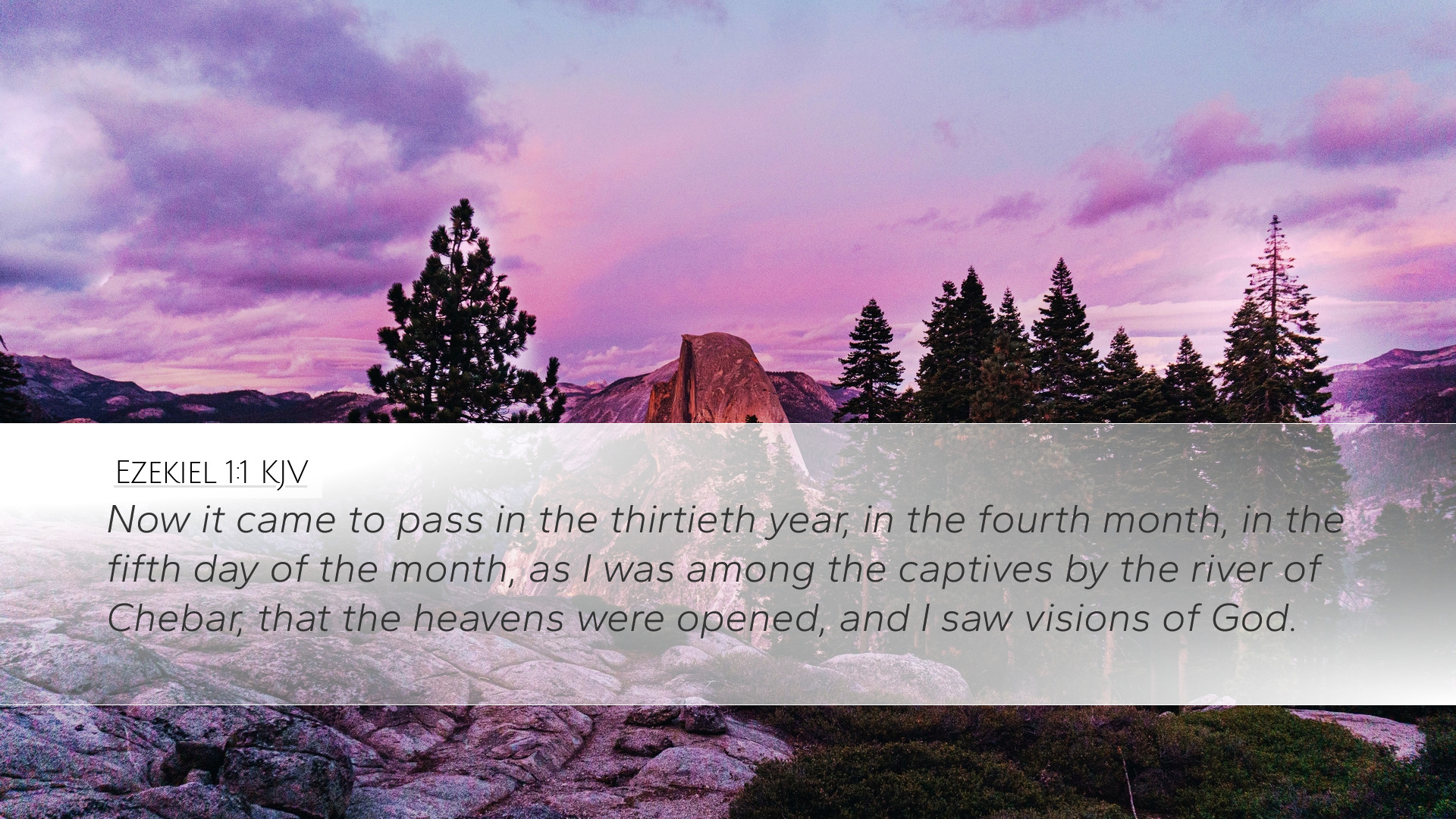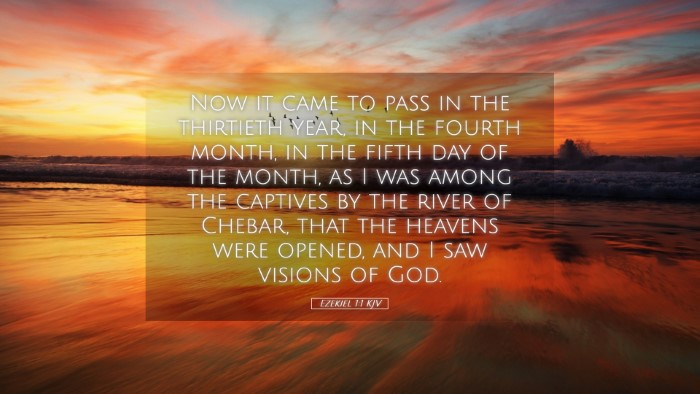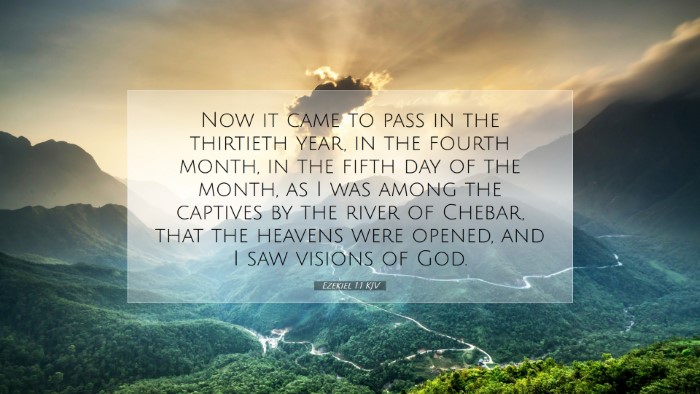Ezekiel 1:1 - A Comprehensive Commentary
The opening verse of the book of Ezekiel marks the beginning of a profound prophetic ministry. Ezekiel, a priest who is called to be a prophet during one of the most tumultuous times in Israel's history, presents a vivid vision that serves as a profound introduction to the themes and messages that follow. This commentary draws from esteemed public domain sources such as Matthew Henry, Albert Barnes, and Adam Clarke to provide a deeper understanding of this pivotal verse.
Text of Ezekiel 1:1
Ezekiel 1:1 (KJV): "Now it came to pass in the thirtieth year, in the fourth month, in the fifth day of the month, as I was among the captives by the river of Chebar, that the heavens were opened, and I saw visions of God."
Historical Context
Matthew Henry notes that Ezekiel was among the exiles in Babylon, which is significant for understanding the prophetic literature. This context of exile is crucial as it reflects the spiritual, social, and emotional state of the Israelites during this time. The naming of specific time markers emphasizes the historical severity and urgency of his call to prophecy. The numerical details point to both the literal and symbolic nature of God's timing.
The Significance of the Thirtieth Year
According to Albert Barnes, the "thirtieth year" may indicate the age at which priests began their ministry. This suggests a readiness and a divine commission for Ezekiel as he transitions from priesthood to prophecy. Being called at this significant age may also denote a turning point in Israel’s spiritual history, highlighting the importance of maturity—both physically and spiritually.
River of Chebar
Adam Clarke elaborates on the location of Chebar, understood as a canal used for irrigation in Babylon. This setting of a river is poignant: it symbolizes both the physical separation from the homeland and a spiritual thirst for renewal among the exiles. The river evokes a sense of longing but also becomes the stage for divine revelation.
The Opening of the Heavens
Matthew Henry comments on the 'heavens were opened,' indicating the extraordinary nature of the experience that Ezekiel is about to encounter. This motif of the opened heavens signifies divine disclosure; it's a moment where the barriers between heaven and earth momentarily dissolve, allowing the prophet a glimpse into spiritual realities.
- God's Revelation: The visions that follow are not mere fantasies but an authentic encounter with the Divine. This reiterates God's initiative to reveal Himself in times of crisis.
- The Role of Visions: Visions in prophetic literature often guide, correct, and instruct both the prophet and the people.
The Theme of Vision
For Albert Barnes, the phrase "I saw visions of God" emphasizes the seriousness and authenticity of Ezekiel’s prophetic message. This assertion is vital; it establishes that Ezekiel's prophecies are not human conjectures but divinely initiated. These visions thus serve as the foundational basis for the prophetic narratives that will unfold in subsequent chapters.
Theological Implications
Ezekiel’s experience of the opening heavens and visionary revelation invites theological reflections. It demonstrates God's sovereignty and His ability to reach out to humanity in unexpected places—particularly among a people in exile. Adam Clarke emphasizes that such divine encounters occur not only in times of prosperity but also in moments of disruption and despair. This frames God as approachable, even in circumstances that might suggest His absence.
Concluding Thoughts
The opening verse of Ezekiel serves as a critical juncture that encapsulates the prophet’s divine calling in the midst of exile. Through the insights of Matthew Henry, Albert Barnes, and Adam Clarke, this passage emerges not merely as a historical account but as a vibrant invitation to reflect on God's unyielding presence and pursuit of His people, even in the darkest of circumstances. As pastors, students, theologians, and Bible scholars, this verse encourages us to remain open to the divine revelations in our own lives, as we navigate through our respective seasons of waiting and discernment.


